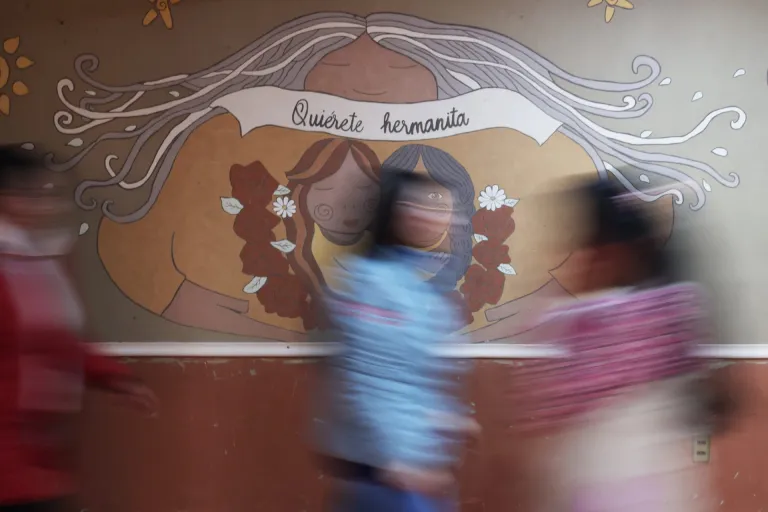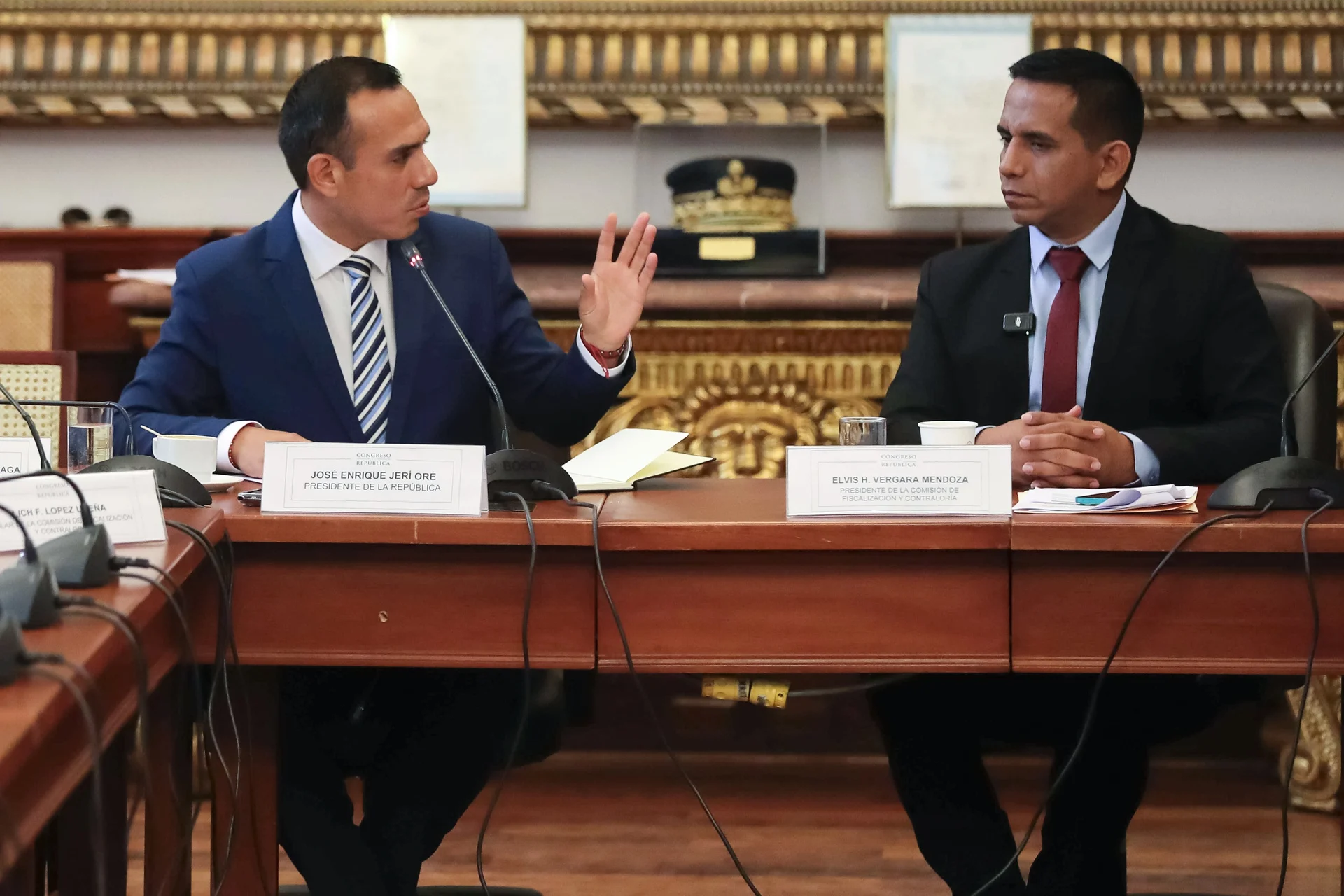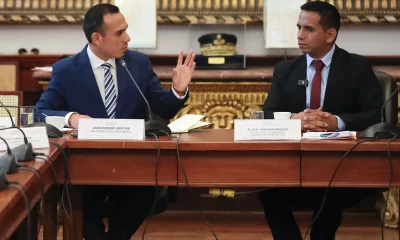International
Two laws in force in Bolivia since 2014 allowed the marriage of 487 girls and 4,804 adolescents

Two laws in force in Bolivia guarantee that girls and adolescents up to the age of 17 marry males of legal age, which, according to complaints from human rights defenders of the Andean country, exposes them to sexual abuse, abandonment and unwanted pregnancies.
A recent report by the Ombudsman’s Office revealed that since 2014 the Bolivian State registered 487 marriages of girls and 4,804 links of adolescents, all with the consent of the parents of the minors.
These figures alarm Ariel Ramírez, director of the Munasim Kullakita Foundation (‘quiérete sirta’, in the Aymara language), who works on the problem of human trafficking, pimping, child pornography and sexual exploitation.
“We have forced unions, violations that become conciliations with the aggressor and reach marriage, or cases of rape that become marriages by conciliation. Behind these data we do not see the damages that are generated against the girls nor do you see the future problems they are going to suffer,” he told EFE Ramírez.
The legality of these marriages is based on Law 996 ‘Family Code’, which dates from 1988, and Law 603 ‘Code of Families and the Family Process’, promulgated in 2014.
The first rule states that women “before the age of 14 cannot marry,” but then indicates that “the judge can grant age waiver for serious and justified reasons.”
The second says that exceptionally, marriage can be constituted “at the age of 16, provided that there is the written authorization of those who exercise parental authority.”
“These records date back approximately 10 years and the legal regulations at the time allowed those exceptions to carry out those marriages with parental consents,” the national director of the Civic Registry Service (Sereci), David Dávila, confirmed to EFE.
Given the number of marriages registered in 10 years, Dávila said that it is worrying and that although marriages have been reduced in recent years, they still occur.
“Behind these issues of forced unions there is a total detachment from the State. We have had two cases of girls who were sexually exploited by their husbands. One of them took his friends to his house,” said the director of Munasim Kullakita.
According to Ramírez, among the short or long-term consequences is the abandonment of the husband when the adolescent is pregnant or the removal of relatives after getting married, which leaves the minors more vulnerable.
“I had to get together, I had no other choice, my family left me,” said a teenager interviewed by the Ombudsman’s Office, when asked why she got married.
“It was evident that many, when forced to marry, left their family environment to live with their husband’s family, which implies situations of physical, psychological or sexual violence,” the Ombudsman’s Office concluded in its report “Interrupted Dreams.”
“My father forced me” or “they forced me to marry” reflect the null consent that existed in these marriages, “forcing a girl or adolescent to assume roles of wife at a young age and for those who are not physically, psychologically or sexually prepared,” the institution said.
From the Sereci they reported that among the cases they received is that of a 15-year-old teenager who was taken by her parents to a notary’s s Office to marry a 78-year-old neighbor.
“When the civil registrar saw that age difference, he asked the girl if he agreed and she replied no, that her parents took her and then it was known that the reason for the marriage was an economic matter, her parents had debts,” the source who preferred not to identify himself told EFE.
The marriage was not registered because the teenager’s parents were convinced to suspend it.
According to the Sereci registry, in the eastern region of Santa Cruz there is the largest number of marriages of girls and adolescents. It is followed by the central department of Cochabamba and La Paz.
The investigations of the Munasim Kullakita Foundation agree that some parents take their daughters to marry adult boys because they abused them and became pregnant, or for an economic arrangement.
Ramírez emphasized that in the absence of State protection, which translates into the absence of children’s defenders and sexual and reproductive education policies, measures must be taken from all levels of the Government so that this problem comes to light.
International
Colombia slams Ecuador’s 30% tariff as ‘economic aggression’

Colombia’s Minister of Mines and Energy, Edwin Palma, on Wednesday described as an “economic aggression” the 30% “security fee” imposed by Ecuadorian President Daniel Noboa on imports from Colombia.
“We reject the tariff measure imposed by Ecuador, an economic aggression that breaks the principle of regional integration,” Palma said in a post on X.
President Noboa explained that the decision was taken due to what he described as a “lack of reciprocity and firm actions” by Colombia in the fight against drug trafficking. He added that despite Ecuador having made “real efforts of cooperation,” including maintaining a trade deficit exceeding $1 billion annually, the country’s armed forces continue to face drug-linked criminal groups along the border without any cooperation.
For that reason, Noboa stated that the measure will remain in place “until there is a real commitment” from Colombia to jointly confront drug trafficking and illegal mining along the 586-kilometer shared border, with the same level of determination Ecuador is currently applying.
According to official data, Ecuador seized 214.5 metric tons of drugs in 2025, down from the record 294.6 tons confiscated in 2024.
Colombian President Gustavo Petro said on January 7 that during his administration, which began on August 7, 2022 and ends this year, drug seizures have increased significantly, adding that total confiscations are expected to exceed 3,500 tons by the time he leaves office.
International
José Jerí claims destabilization attempt after videos of secretive meetings surface

Peru’s interim president, right-wing leader José Jerí, on Wednesday denounced an alleged plot against him and warned of a deliberate attempt to destabilize the country, following the release of a series of videos showing semi-clandestine meetings with a Chinese businessman, as well as visits to the Government Palace by another businessman of the same nationality who is under house arrest.
“I also want to know who is behind this entire plot. I am an objective and impartial president who does not give in to pressure, but someone has found a way to do so. I want to know who is behind it and what their real objective is,” Jerí said while appearing before Congress’ Oversight and Comptroller Commission.
The interim president, who recently marked 100 days in office after replacing former president Dina Boluarte (2022–2025) in his role as head of Congress, insisted that he has never lied to the country. Without directly accusing any individual or group, he argued that routine activities—such as visiting a restaurant or a shop—are being portrayed with a “malicious” intent.
So far, reports indicate that on December 26, close to midnight, Jerí visited a chifa restaurant—a Peruvian-Chinese eatery—owned by Chinese businessman and state contractor Zhihua “Johnny” Yang, accompanied by Interior Minister Vicente Tiburcio, and wearing a hood. On January 6, he also visited a shop belonging to the same businessman, which had been shut down by municipal authorities just hours earlier.
The revelations have fueled political controversy and renewed scrutiny of the interim administration’s actions amid Peru’s ongoing political instability.
International
Mexican influencer “La Nicholette” kidnapped in exclusive area of Culiacán

The content creator known as “La Nicholette,” also referred to as “La Muchacha del Salado,” was kidnapped Tuesday afternoon in Isla Musalá, one of the most exclusive residential areas of Culiacán, capital of the northern Mexican state of Sinaloa, according to local media reports on Wednesday.
The abduction was captured by the security camera of the young woman’s vehicle, a lilac-colored Tesla Cybertruck, which was later found abandoned at the scene.
Video footage circulating on social media shows a masked man carrying a long firearm preventing the influencer from entering her vehicle, while another individual forces her into a white sedan, reportedly an older-model Toyota Corolla.
According to media reports, the incident occurred at approximately 5:00 p.m. local time (2300 GMT) at the intersection of Tachichilte Avenue and San Esteban Street, within the Musalá residential area.
Authorities have not yet released official details regarding the victim’s whereabouts or the motives behind the kidnapping.
-

 International3 days ago
International3 days agoDeath toll from southern Spain train crash rises to 40
-

 International5 days ago
International5 days agoU.S. deportation flight returns venezuelans to Caracas after Maduro’s ouster
-

 Central America3 days ago
Central America3 days agoGuatemala raises police death toll to nine after gang violence escalates
-

 Central America4 days ago
Central America4 days agoGuatemala prison uprisings leave 46 guards held by gangs
-

 International10 hours ago
International10 hours agoMexican influencer “La Nicholette” kidnapped in exclusive area of Culiacán
-

 International3 days ago
International3 days agoOver 160 christian worshippers kidnapped in Kaduna Church attacks
-

 International2 days ago
International2 days agoDaily Mail publisher insists reports relied on legitimate sources amid privacy trial
-

 International4 days ago
International4 days agoChile declares state of catastrophe as wildfires rage in Ñuble and Biobío
-

 International5 days ago
International5 days agoFormer South Korean President Yoon sentenced to five years in prison
-

 International2 days ago
International2 days agoGermany says football bodies alone will decide on possible World Cup boycott
-

 International3 days ago
International3 days agoSpain’s Prime Minister pledges transparency after train crash kills at least 39
-

 International10 hours ago
International10 hours agoTrump announces preliminary NATO agreement on Greenland, suspends tariffs on Europe
-

 International10 hours ago
International10 hours agoMajor winter storm to blanket U.S. and Canada with snow, ice and arctic cold
-

 International9 hours ago
International9 hours agoJosé Jerí claims destabilization attempt after videos of secretive meetings surface
-

 International9 hours ago
International9 hours agoColombia slams Ecuador’s 30% tariff as ‘economic aggression’


























